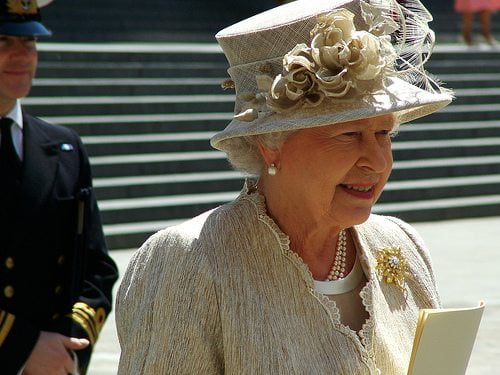

Economy
Queen’s speech: coalition of 400 businesses calls for infrastructure bill upheaval
The Social Economy Alliance, a growing consortium of around 400 national and local organisations, is calling for the rewriting of the infrastructure bill ahead of its announcement in the Queen’s speech on Wednesday.
The government is set to prioritise economic growth with investments in roads, railways, fossil fuels, telecommunications and flood defences. But the alliance believes that wiser, targeted spending on these projects can ensure communities and taxpayers, over private investors, see the benefits from the spending.
Ed Mayo, spokesperson for the Social Economy Alliance, said, “The new infrastructure bill is a historic opportunity. If spending earmarked for infrastructure projects follows the rules laid out by the government’s own Social Value Act, then it could help create jobs and apprenticeships, cut crime, improve health, boost education, reduce unemployment and encourage innovation.”
A fear that government investing will only benefit private parties and the super-rich has led to the alliance launching a revised version of the bill called Smart Infrastructure.
The paper calls for the expansion of the 2013 Social Value Act as well as protection from “far-removed investors” with “complex private finance initiatives”. It says these remove public ownership of institutions “through layers of anonymous intermediaries” that ultimately leave taxpayers shorthanded.
The new paper also cites figures that estimate 91% of Heathrow, 100% of Gatwick, 70% of UK ports and 60% of water companies are currently owned by foreign pension funds or sovereign wealth funds.
Elsewhere, the government’s decision to go back on its zero-carbon homes pledge has also come under scrutiny. The Solar Trade Association (STA) said the move was a “huge opportunity being missed”.
STA head of external affairs Leonie Greene added, “Something’s gone seriously wrong with the zero-carbon homes agenda if such little effort is being made to incorporate proven technologies into new homes.
“If you’re going to pay a modest premium for a new home, you should be able to recover that cost quickly through very low energy bills – that is what solar technologies enable.”
Meanwhile, the Queen is expected to announce government plans to allow fracking companies to drill under people’s homes in the latest revisions to trespassing law. The current law states that permission must be given to energy companies to drill under people’s homes, but the government intends to end this requirement to speed up the Fracking process.
Green MP Caroline Lucas told the Guardian, “Not only does this bill defy public opinion, it denies people a voice. To allow fracking companies to drill under people’s homes and land without their permission is to ignore public interest in pursuit of the vested interests of a few.”
Further energy anxiety comes in the form of an open letter published by the UK Green Building Council (UK GBC), with the CEOs of Marks & Spencer, Legal & General, Whitbread and Land Securities have urged the government to end the “prevarication” around the introduction of a mandatory energy efficiency standards.
The chief executives warn that with this hesitation comes with “higher costs,” but with a clear directive, could unleash a “tidal wave of investment” in the global energy efficiency market.
Photo: Michael Gwyther-Jones via Flickr
Further reading:
Zero-carbon homes pledge to be dropped in Queen’s speech
‘Queen not being served well by Treasury’, say MPs
Government will make further progress in tackling climate change, says Queen
“It’s the ecology, stupid”: a response to the Queen’s speech


 Environment12 months ago
Environment12 months agoAre Polymer Banknotes: an Eco-Friendly Trend or a Groundswell?

 Features11 months ago
Features11 months agoEco-Friendly Cryptocurrencies: Sustainable Investment Choices

 Features12 months ago
Features12 months agoEco-Friendly Crypto Traders Must Find the Right Exchange

 Energy11 months ago
Energy11 months agoThe Growing Role of Solar Panels in Ireland’s Energy Future





























